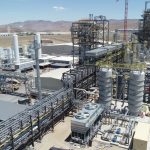International Airlines Group (IAG), parent company of Aer Lingus, British Airways, Iberia, Vueling and LEVEL, is making a £4.4 million ($5.6m) investment in UK cleantech company Nova Pangaea Technologies (NPT), which is developing technology to convert agricultural waste and wood residue feedstocks into second-generation bioethanol that can then be processed into sustainable aviation fuel. IAG says the investment is in addition to an existing commitment of $865 million in future SAF purchases and other investments, with agreements in place for 250,000 tonnes of SAF that represent 25% towards its target of one million tonnes by 2030. The new investment will progress the development of NOVAONE, NPT’s first waste-to-fuel commercial-scale production facility. Construction at a site in North-East England is expected to begin later this year, with the facility producing biofuels by 2025. IAG says it is seeking to secure further UK SAF supply ahead of the UK government’s SAF mandate due to be introduced from 2025.
The mandate requires at least 10% jet fuel to be made from sustainable feedstocks by 2030, representing 1.2 million tonnes (1.5 billion litres) of fuel. IATA estimates total global production in 2022 to have been a maximum of 450 million litres so, points out IAG, global supply would have to triple just to meet the UK’s mandate. Therefore, facilities such as that which NPT is planning to construct will be vital in meeting this demand, says IAG, which is planning to harness NPT’s technology to support the decarbonisation of the other airlines in its group.
“Sustainable aviation fuel is the only realistic option for long-haul airlines to decarbonise, which is why investment in this area is so critical,” commented Luis Gallego, CEO of IAG, the first European group to commit to the use of 10% SAF by 2030. “And we are not just buying SAF, we are willing to invest in developing the industry, but we need governments in the UK and Europe to act now to encourage further investment.”
NPT’s technology is feedstock agnostic, which de-risks the supply chain and future proofs the production of second-generation ethanol, says the company. Residues from sawmills and forestry operations will come from UK sawmills and include sawdust and other wood trimmings. Agricultural waste, including wheat straw and corn stover, are mostly left on the fields after harvests and used for fodder or landfill materials. NPT’s REFNOVA process also produces the co-product biochar, a natural carbon sink that can be used as soil enhancement.
Commenting on the IAG investment, NPT’s Chief Executive, Sarah Ellerby, said: “This is a transformational milestone and a real endorsement of the work we are doing. We are delighted to be adding IAG to our shareholder register.
“Our facility will be the UK’s first commercial plant of its kind and it will play a crucial role in decarbonising the aviation sector, as well as providing local employment opportunities. We are confident in beginning construction later this year and producing second-generation biofuels by 2025.”
NPT first struck a partnership with IAG subsidiary British Airways and LanzaJet in 2021, announcing the launch of Project Speedbird, in which NPT would be providing bioethanol feedstocks to be processed into SAF for the airline by a dedicated SAF plant using LanzaJet’s patented technology. With British Airways intending to purchase all the SAF, the facility is expected to produce 82,000 tonnes of SAF per year and so reducing net lifecycle CO2 emissions by 230,000 tonnes per year, the equivalent of around 26,000 BA domestic flights.
Photo: British Airways














More News & Features
SAF One announces new investment and technology partners for Middle East SAF project
New initiative formed to accelerate SAF adoption and production in the Pacific Northwest
EcoCeres opens new Malaysia production facility as SAF ambition in Asia scales up
Aviation, shipping and fuel leaders convene in Rotterdam to accelerate sustainable fuels scale-up
EU SAF mandates will have to be revised, predicts French oil chief
Lessons learned from the collapse of Fulcrum BioEnergy